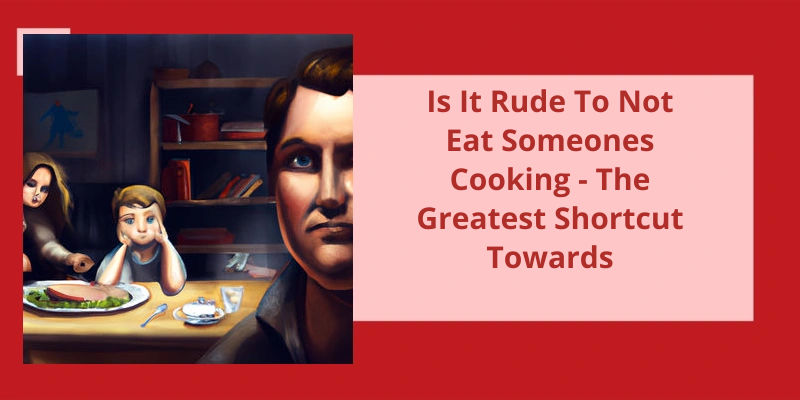However, the meaning of 'lots of love' can vary depending on the context and the person who says it. For a guy, saying 'lots of love' to a woman can signify romantic feelings or a deeper emotional connection between them. It could also be a way of expressing support and empathy during a challenging time.
What Does Wish You Lots of Love Mean?
When someone wishes you lots of love, it’s their way of expressing their genuine care and affection towards you. It signifies a deep emotional connection that they feel with you, and the desire to see you happy and loved. It’s a beautiful sentiment that’s often shared among close relationships, where the bonds of love are strong and unbreakable.
This phrase also conveys a sense of warmth and comfort, which is particularly important during times of hardship or difficulty. When things get tough, hearing that someone wishes you lots of love can provide a source of strength and hope. It reminds you that you aren’t alone, and that there are people who care deeply about your well-being.
Furthermore, wishing someone lots of love can serve as a reminder to prioritize love and connection in our lives. In a world that can often feel cold and harsh, it’s important to remember the power of love and how it can help us navigate lifes challenges.
It’s a powerful reminder of the importance of our relationships, and the bonds that we share with those we hold dear. Whether it’s said at the end of a letter, or in the midst of a difficult time, it’s a sentiment that can bring comfort, joy, and hope to those who receive it.
Now that we understand the informal nature of ending a written message with “lots of love,” let’s delve into the various ways people can express their affection in written communication.
Is Lots of Love Formal?
The phrase lots of love is often used as a way to express affection and warmth towards someone, and it’s considered an informal way of doing so. It’s typically used in written messages, such as emails or text messages, and is generally reserved for people that you’re close to. The use of this phrase is often seen as a way to end a communication on a positive note, and to show your feelings towards the other person.
In some cases, a more formal approach may be necessary, such as in a business context, where the use of casual language can come across as unprofessional. In other situations, such as when writing a letter to a loved one, using an informal phrase like lots of love may be perfectly appropriate.
It’s also important to consider cultural differences when using phrases like lots of love. While it may be commonly used in Western cultures, in some cultures, the expression of emotions in public or in written communication may not be as common or accepted. Therefore, it’s important to be mindful of the cultural norms and expectations when communicating with people from different backgrounds.
Alternatives to “Lots of Love” for Informal Communication
- XOXO
- Warmly
- Yours Truly
- All the Best
- Cheers
- Take Care
- Best Regards
- Hugs and Kisses
- With Love
- Forever Yours
Now that we’ve explored the meaning of “much love” in a text, let’s dive deeper into the world of texting and the various ways in which we express ourselves through this modern form of communication. From emojis to acronyms, there are countless ways we convey our emotions and thoughts through text messages. So, buckle up and get ready to decode the hidden meanings behind some of the most common text message phrases and abbreviations.
What Does Much Love Mean in a Text?
When someone sends you a text with the phrase “much love,” it typically signifies that they hold a special place in their heart for you. It can be an expression of deep, authentic affection, one that indicates they appreciate your presence in their life. They may consider you an important person, someone who’s made a difference in their life. It’s a term of endearment that represents the high regard that they’ve for you.
This expression can also be used to convey a sense of closeness, empathy, and understanding. When someone tells you that they’ve much love for you, they may be trying to communicate that they’re there for you, that they care for you, that they empathize with your struggles, and that they support you. This is especially true when someone goes through a difficult time, such as a breakup or the loss of a loved one.
It can be an acknowledgment of the efforts that youve put into a relationship, as well as the positive influence that youve had on others.
How to Respond to a Text That Says “Much Love”
If you receive a text that says “much love,” you can respond with a simple “thank you” or “sending love back.” This shows appreciation and reciprocation for the kind sentiment. Alternatively, you can respond with something like “you’re the best,” to express your positive feelings towards the sender.
Source: Is there a difference between closing a letter with the …
While both ‘lots of love’ and ‘loads of love’ may seem interchangeable, there are subtle differences in their usage and connotations. Understanding these differences can help you communicate effectively with native English speakers and avoid sounding like a non-native speaker.
What Is the Difference Between Loads of Love and Lots of Love?
While the difference between these two phrases might seem insignificant, there’s a subtle but important distinction between them. Lots of love is a common expression that’s used to express affection or warmth towards someone; it’s often used as a way to end a letter or conversation. However, loads of love is a creative variation of this more traditional expression, one that might be more frequently used by young people who want to be playful or innovative in their language.
For example, if youre writing a business letter or communicating in a professional setting, it would probably be better to use a more formal expression. However, in more casual settings, lots of love and loads of love can be a great way to add warmth and affection to your communication.
Regardless of which expression you choose, it’s important to remember that the tone and intent behind the words is what really matters. Whether you say lots of love or loads of love, if you say it with sincerity and genuine care for the person youre addressing, it will be appreciated. Ultimately, the key to relationships isn’t the specific words we use, but the authenticity and thoughtfulness we bring to our interactions with others.
Origins of the Phrases “Lots of Love” and “Loads of Love”
- The phrase “lots of love” originated in the early 1800s as a way of expressing affection in letter writing. It was commonly used in correspondence between family members and loved ones.
- The phrase “loads of love” is a variation of “lots of love” and is believed to have originated in the mid-20th century. It became more popular in the UK and Australia.
- Both phrases have become widely used in modern times, particularly in social media posts and messages.
- Despite their similar meanings, the phrase “lots of love” is generally considered more formal and appropriate for professional correspondence, while “loads of love” is seen as more casual and informal.
- Other variations of the phrase include “tons of love” and “heaps of love,” which also indicate a high level of affection or sentiment.
However, when someone says “I love you lots,” it can also carry a slightly different connotation. While still conveying strong feelings of affection, some people interpret this phrase as having a more casual or playful tone. So, what exactly does it mean to say “I love you lots”? Let’s explore this phrase in more depth.
What Is the Meaning of I Love You Lots?
The phrase “I love you lots” is an expression of deep affection. It’s a way of telling someone how much they mean to you and how much you cherish them. Whether it’s a friend, a family member, or a significant other, this phrase can convey a lot of emotion and appreciation. It’s often used as a way to demonstrate gratitude and fondness towards someone.
For some, it might indicate the intensity of their feelings, while for others, it could be a way of expressing that they’re devoted to the relationship. Regardless of the context, this phrase can bring a lot of happiness to the recipient, as it implies that they’re very much valued and loved.
It can be seen as a more casual or informal way of saying “I love you”, without detracting from the sincerity of the statement. Some people might prefer to use this phrase when they feel awkward or uncomfortable expressing their feelings in a more elaborate manner.
Is “I Love You Lots” Different From “I Love You”?
Many might use “I love you lots” and “I love you” interchangeably, but “I love you lots” conveys a higher degree of affection and attachment to another person.
Conclusion
It's important to note that the level of affection may vary between individuals and situations. Communication and understanding are key in any relationship, and it's important to recognize and respect each other's boundaries and levels of comfort when expressing affection. Ultimately, 'lots of love' is a reminder that we all need to feel valued, appreciated, and loved by those who matter most to us.






